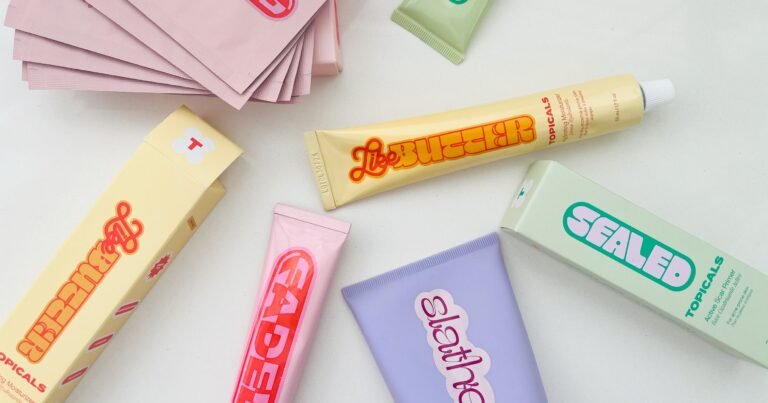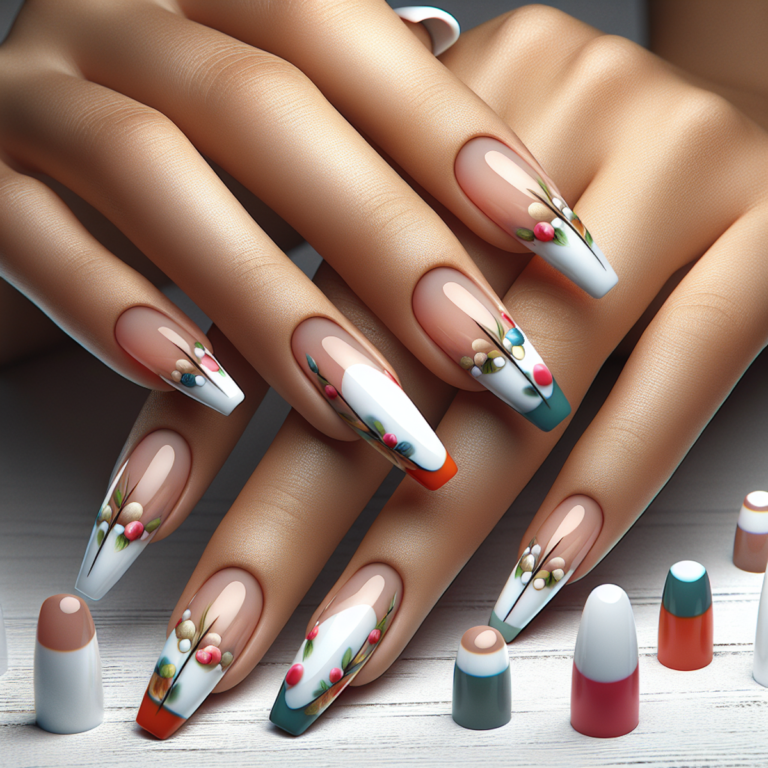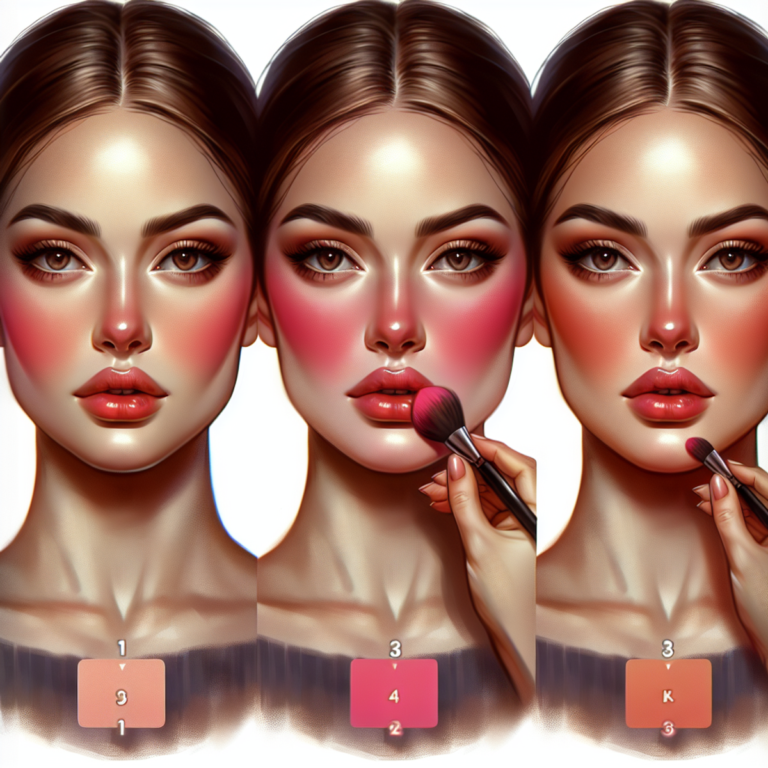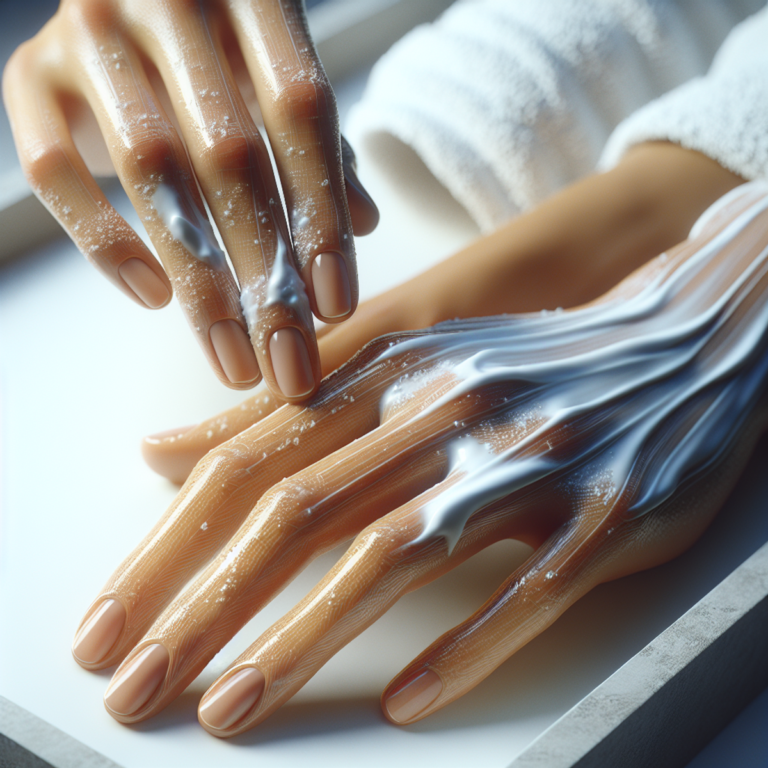How to get rid of acne, according to the dermatologists

Introduction
Acne is a common skin condition that affects millions of people worldwide. It appears in different forms like whiteheads, blackheads, pimples, and cysts. Acne can have a big impact on your self-esteem and confidence, making it not just a physical problem but an emotional one too.
Getting advice from dermatologists is important for finding effective treatment options. Dermatologists are experts who can figure out the underlying causes of acne and suggest treatments that are right for you. This professional help can make a big difference in managing and eventually getting rid of acne.
In this article, you will learn:
- Understanding Acne: Explore the causes and types of acne.
- Dermatologist-Recommended Treatments: Discover various treatment options including topical treatments and hormonal therapies.
- Over-the-Counter Solutions: Get to know effective OTC products like adapalene gel and azelaic acid cream.
- Building an Effective Skincare Routine: Learn how to maintain a skincare routine suitable for acne-prone skin.
Whether you’re curious about how to get rid of pimples or how to get rid of breakouts, this comprehensive guide offers insights directly from dermatologists.
Understanding Acne: Causes and Types
Acne is mainly caused by hormonal changes, especially during puberty, menstruation, or pregnancy. An increase in androgen hormones like testosterone can lead to excess oil production, creating an environment where acne-causing bacteria thrive. These hormonal fluctuations are a significant factor in the development of different types of acne.
Key Contributors to Acne
- Excess Oil Production: Overactive sebaceous glands produce more oil than necessary, which can mix with dead skin cells and clog pores.
- Bacteria: The presence of Propionibacterium acnes (P. acnes) bacteria on the skin can infect clogged pores, leading to inflammation and breakouts.
- Clogged Pores: Dead skin cells that are not shed properly can accumulate and block hair follicles, resulting in various types of acne.
Types of Acne
- Whiteheads: Closed comedones formed when pores become completely blocked by oil and dead skin cells.
- Blackheads: Open comedones where the pore remains partially open, allowing the trapped material to oxidize and turn black.
- Pimples: Inflamed red spots with a white center that occur when blocked pores become infected.
- Cysts: Large, painful lumps beneath the skin surface filled with pus, often caused by severe infection within a blocked pore.
Additional Factors Worsening Acne
- Diet: High glycemic index foods and dairy products can exacerbate acne for some individuals. In fact, following a specific hormonal acne diet may help alleviate symptoms for those affected by hormonal fluctuations.
- Stress: Elevated stress levels can trigger hormonal imbalances that increase oil production.
- Medications: Certain drugs, including corticosteroids and lithium, may contribute to acne development.
Key Takeaway
Understanding the underlying causes and types of acne is crucial for effective treatment. Knowing whether your acne is due to hormonal changes, bacterial infection, or other factors will help you choose the most appropriate treatment strategies. This knowledge also aids in addressing questions like how to remove pimples, how to get rid of pimples overnight, or even how to remove pimples naturally and permanently.
Dermatologist-Recommended Treatments for Acne
1. Topical Treatments
Topical treatments are crucial in managing acne. They directly target the affected skin areas, providing relief from existing breakouts and preventing future ones.
Benzoyl Peroxide
Benzoyl peroxide is a powerful ingredient commonly found in acne treatments. It works by:
- Killing bacteria: Benzoyl peroxide penetrates the pores and eliminates P. acnes, the bacteria responsible for acne.
- Unclogging pores: It helps remove dead skin cells and excess oil, preventing clogged pores which can lead to whiteheads and blackheads.
Dermatologists often recommend starting with a lower concentration (2.5% to 5%) to minimize potential irritation.
Retinoids
Retinoids are derivatives of Vitamin A and are highly effective in treating various forms of acne:
- Promoting skin cell turnover: Retinoids accelerate the shedding of dead skin cells, reducing the likelihood of clogged pores.
- Reducing oil production: By decreasing sebum production, retinoids help control oiliness, a major factor in acne development.
Common retinoids include tretinoin, adapalene, and tazarotene. These are usually available by prescription but some over-the-counter options like Differin Gel (adapalene) can also be effective.
Salicylic Acid
Salicylic acid is another key ingredient in topical acne treatments:
- Exfoliating the skin: Salicylic acid dissolves dead skin cells on the surface and within pores, preventing blockages that can lead to breakouts.
- Treating existing breakouts: Its anti-inflammatory properties help reduce redness and swelling associated with pimples.
Typically found in cleansers, toners, and spot treatments, salicylic acid concentrations of 0.5% to 2% are common in over-the-counter products.
2. Hormonal Therapies
Hormonal therapies for acne are particularly beneficial for adult cases where hormonal imbalances play a significant role in flare-ups. Dermatologists often recommend these treatments when topical solutions like benzoyl peroxide, retinoids, and salicylic acid do not suffice.
Birth Control Pills
Birth control pills can regulate hormones that contribute to acne. They work by reducing the levels of androgen hormones, which decreases oil production in the skin. This reduction in oil production helps to prevent clogged pores and subsequent breakouts.
Commonly prescribed birth control pills for acne include:
- Combination pills: Contain both estrogen and progestin, providing a dual approach to hormone regulation.
- Progestin-only pills: Suitable for those who cannot take estrogen due to medical reasons.
It’s essential to consult a dermatologist to determine which type is most appropriate for you based on your medical history and specific skin condition.
Spironolactone
Spironolactone is an anti-androgen medication often used to manage hormonal acne. It works by blocking androgen receptors, thereby reducing the effects of male hormones that can trigger oil production and acne formation.
Key benefits of spironolactone:
- Reduces sebum production
- Decreases inflammation
- Minimizes the occurrence of new acne lesions
Patients typically start with a low dose, which can be adjusted based on efficacy and tolerance. Regular follow-ups with your dermatologist are crucial to monitor progress and manage any potential side effects.
Hormonal therapies provide an effective solution for those struggling with persistent adult acne. By addressing the root cause—hormonal imbalances—these treatments offer a targeted approach that complements topical treatments for comprehensive acne management.
Over-the-Counter Solutions for Acne Treatment
1. Adapalene Gel (Differin)
Adapalene gel, commonly known by the brand name Differin, is a significant advancement in over-the-counter acne treatments. It is a third-generation topical retinoid that works at a cellular level to prevent clogged pores and reduce inflammation associated with acne lesions.
How Adapalene Works
- Cellular Mechanism: Adapalene primarily functions by binding to specific retinoic acid receptors in the skin. This action promotes faster skin cell turnover, which helps to shed dead skin cells that can clog pores.
- Anti-inflammatory Properties: Its anti-inflammatory effects help reduce redness and swelling associated with acne lesions, making it effective for both inflammatory and non-inflammatory types of acne.
Application Guidelines
- Preparation: Start by cleansing your face with a mild cleanser to remove dirt and oil. Pat your skin dry gently with a clean towel.
- Application: Apply a thin layer of adapalene gel to the affected areas once daily, preferably at night. Avoid applying it to broken skin or open wounds.
- Moisturizing: Follow up with a non-comedogenic moisturizer to prevent dryness and irritation.
- Sun Protection: As retinoids can make your skin more sensitive to the sun, use broad-spectrum sunscreen during the day.
Potential Side Effects
- Irritation and Dryness: During the initial weeks of use, you may experience dryness, redness, or mild irritation. This is generally temporary as your skin adjusts to the treatment.
- Photosensitivity: Increased sensitivity to sunlight may occur, making it crucial to apply sunscreen daily.
- Consultation: If you notice severe side effects like blistering or severe redness, consult a dermatologist for further guidance.
Adapalene gel offers numerous benefits for those struggling with acne. By understanding its mechanism and following proper application guidelines, you can effectively incorporate adapalene into your skincare routine.
2. Azelaic Acid Cream (Finacea)
Azelaic acid cream, such as Finacea, offers substantial benefits for those dealing with acne. This cream is effective for both inflammatory and non-inflammatory forms of acne due to its unique mechanism of action.
How Azelaic Acid Works
Azelaic acid works by:
- Reducing inflammation: It helps to calm the skin and diminish redness associated with acne lesions.
- Killing bacteria: Targets acne-causing bacteria, preventing future breakouts.
- Normalizing keratinization: Prevents the buildup of dead skin cells that can clog pores and lead to blackheads and whiteheads.
Using Azelaic Acid Cream Safely
To safely integrate azelaic acid cream into your skincare regimen:
- Start Slowly: Begin by applying the cream once daily in the evening. Gradually increase to twice daily if your skin tolerates it well.
- Cleanse First: Ensure your face is clean and dry before application. Use a gentle cleanser that won’t strip away essential moisture.
- Apply Sparingly: Use a pea-sized amount and spread it evenly over affected areas.
- Moisturize: Follow up with a non-comedogenic moisturizer to keep the skin hydrated without clogging pores.
- Sun Protection: Azelaic acid can make your skin more sensitive to UV rays, so apply sunscreen during the day.
By understanding how azelaic acid cream works and incorporating it properly into your routine, you can effectively target various forms of acne while maintaining healthy skin. For more comprehensive insights into different acne treatments, exploring additional options beyond azelaic acid could also be beneficial.
Building an Effective Skincare Routine for Acne-Prone Skin
1. Cleansing the Skin Properly Without Overdoing It!
When it comes to a skincare routine for acne-prone skin, cleansing is the cornerstone. However, over-cleansing can strip the skin of its natural oils, exacerbating acne problems. The key lies in balance.
Recommended Cleansing Products
Selecting the right cleanser involves looking for products formulated with gentle yet effective ingredients. Here are some dermatologist-recommended options:
- Salicylic Acid Cleansers: Salicylic acid is a beta hydroxy acid (BHA) that penetrates deep into the pores to remove excess oil and dead skin cells, preventing clogged pores. Examples include:
- CeraVe Renewing SA Cleanser
- Neutrogena Oil-Free Acne Wash
- Tea Tree Oil Cleansers: Known for its antibacterial properties, tea tree oil helps reduce inflammation and kill acne-causing bacteria. Some popular choices are:
- The Body Shop Tea Tree Skin Clearing Facial Wash
- Desert Essence Thoroughly Clean Face Wash
How to Cleanse Correctly
- Twice Daily Cleansing: Wash your face twice a day—once in the morning and once before bed. Over-washing can lead to dryness and irritation, which may worsen acne.
- Gentle Techniques: Use lukewarm water and avoid scrubbing your skin harshly. A gentle circular motion with your fingertips is sufficient.
- Pat Dry: After rinsing, pat your face dry with a clean towel. Avoid rubbing as it can irritate the skin further.
Maintaining this balanced approach ensures that you keep breakouts at bay without stripping away essential moisture from your skin barrier.
2. Moisturizing Even If You Have Oily Skin!
Many people with acne-prone skin skip moisturizing, fearing it will make their skin oilier and lead to more breakouts. However, this is a myth. Moisturizing is crucial for all skin types, including oily and acne-prone skin.
Why Moisturize?
- Hydration Balance: Proper hydration helps maintain the skin barrier function, which protects against environmental irritants and bacteria.
- Prevents Overproduction of Oil: When your skin is dehydrated, it may compensate by producing more oil, leading to clogged pores and acne.
Choosing the Right Moisturizer
Look for lightweight, non-comedogenic moisturizers that won’t clog pores:
- Gel-Based Moisturizers: These are usually water-based and provide hydration without feeling heavy or greasy.
- Neutrogena Hydro Boost Water Gel
- Clinique Dramatically Different Hydrating Jelly
- Oil-Free Formulations: Designed specifically for acne-prone skin, these moisturizers hydrate without adding extra oil.
- Cetaphil PRO Oil Absorbing Moisturizer
- La Roche-Posay Effaclar Mat
Incorporating these products into your daily routine ensures that your skin remains hydrated without aggravating acne conditions.
By following these guidelines on cleansing and moisturizing, you set a strong foundation for an effective skincare routine tailored to acne-prone skin. Keeping these practices consistent can significantly improve both the appearance and health of your skin.
2. Moisturizing Even If You Have Oily Skin!
Many people with oily or acne-prone skin mistakenly believe that moisturizing will only make their condition worse. However, dermatologists stress the importance of using lightweight, non-comedogenic moisturizers as an essential part of any skincare routine for acne-prone skin.
Why Moisturize?
- Balance Oil Production: The right moisturizer helps balance your skin’s oil production. When you strip away moisture through aggressive cleansing, your skin may compensate by producing even more oil, leading to breakouts.
- Protect the Skin Barrier: Proper hydration maintains the integrity of your skin barrier, which is essential for protecting against environmental stressors and bacteria.
- Improve Treatment Efficacy: Many acne treatments are drying. Using a moisturizer can help reduce side effects, allowing you to continue using effective treatments without irritation.
Key Features to Look For:
- Non-Comedogenic Formulas: These products are specifically designed to avoid clogging pores. Look for labels indicating “non-comedogenic” or “won’t clog pores.”
- Lightweight and Oil-Free: Opt for gel-based or water-based moisturizers that provide hydration without a greasy feel.
- Ingredients to Consider: Hyaluronic acid for hydration, niacinamide for soothing inflammation, and glycerin for moisture retention.
Recommended Products:
- Neutrogena Hydro Boost Water Gel: Known for its lightweight texture and hyaluronic acid content.
- CeraVe PM Facial Moisturizing Lotion: Contains ceramides and niacinamide to restore the skin barrier while being non-comedogenic.
- La Roche-Posay Effaclar Mat: Specifically formulated for oily skin, helping to reduce shine while hydrating.
By incorporating a suitable moisturizer into your skincare routine, you can keep your skin hydrated without worsening acne. Maintaining this balance is key to achieving clearer, healthier skin.
3. Targeted Treatments That Work Like Magic!
Establishing a consistent skincare routine tailored specifically to address the needs of oily or blemish-prone skin is essential. Targeted treatments play a crucial role in this routine by addressing specific concerns with precision.
Niacinamide and sulfur are two active ingredients known for their ability to reduce redness and swelling associated with individual pimples overnight without causing further irritation.
Niacinamide
This ingredient, also known as Vitamin B3, is celebrated in the skincare community for its anti-inflammatory properties. It helps reduce the appearance of blemishes and improves the skin’s barrier function. Niacinamide can also help regulate oil production, making it a fantastic addition to any skincare routine for acne-prone skin.
Sulfur
Known for its antibacterial properties, sulfur works by drying out the surface of your skin to help absorb excess oil that may contribute to acne formation. It’s particularly effective for treating whiteheads and blackheads.
When incorporating these targeted treatments into your routine:
- Cleanse your face properly: Use gentle cleansing techniques for acne-prone skin with products formulated to prevent clogged pores.
- Apply targeted serums or spot treatments: After cleansing, gently apply niacinamide or sulfur-based products on affected areas.
- Follow with a moisturizer: Even if you have oily skin, using a lightweight, non-comedogenic moisturizer helps maintain hydration without clogging pores.
Incorporating these targeted solutions ensures your skincare routine addresses both prevention and treatment effectively, leading to clearer skin over time.
Natural Remedies That May Help Improve Acne-Prone Skin
Exploring natural remedies for acne can be an effective supplement to traditional treatments. Several plant-based ingredients have shown promise in reducing inflammation and soothing irritated skin.
Witch Hazel Extract
Witch hazel extract is a popular natural remedy for blemishes. Its anti-inflammatory properties help reduce redness and swelling associated with acne. Applied topically, witch hazel acts as an astringent, tightening the skin and minimizing pores, which can help prevent future breakouts.
Green Tea Extract
Green tea extract is another potent ingredient known for its anti-inflammatory and antioxidant properties. Studies have indicated that applying green tea extract to the skin can significantly reduce sebum production and inhibit the growth of acne-causing bacteria. This makes it a valuable addition to any anti-acne skincare routine.
Tea Tree Oil
Tea tree oil stands out for its antimicrobial benefits. Research supports its effectiveness in reducing both inflammatory and non-inflammatory acne lesions. Due to its potency, it’s recommended to use diluted forms or products specifically formulated with tea tree oil to avoid skin irritation.
Aloe Vera
Aloe vera, famed for its soothing qualities, can also be beneficial in managing acne-prone skin. Its antibacterial properties help cleanse the skin while its anti-inflammatory effects reduce redness and irritation. Applying aloe vera gel directly to affected areas can aid in healing existing breakouts and preventing new ones.
Incorporating these natural remedies into your skincare routine may enhance your efforts in combating acne, alongside dermatologist-recommended treatments.
Lifestyle Changes That Can Support Your Journey Towards Clearer Skin!
Dietary Considerations
Your diet plays a crucial role in managing acne. Consuming processed foods high in refined sugars can worsen inflammation within the body, often leading to more severe acne breakouts. To reduce this:
- Reduce refined sugars: Limit your intake of sugary snacks, soft drinks, and other processed foods.
- Incorporate whole foods: Opt for vegetables, fruits, lean proteins, and whole grains to nourish your skin from within.
- Stay hydrated: Drinking plenty of water helps maintain skin hydration and aids in flushing out toxins.
Importance of Sleep Quality
Quality sleep should not be overlooked during your journey towards clearer skin. While often underestimated, sleep quality significantly impacts skin health:
- Promotes healing: Adequate sleep aids in cell repair and regeneration, crucial for reducing acne lesions.
- Reduces stress: Poor sleep elevates stress levels, which can trigger hormonal imbalances that contribute to acne flare-ups.
Prioritize a consistent sleep schedule and create a relaxing bedtime routine to enhance both sleep quality and overall skin health.
Adopting these lifestyle changes complements medical treatments and fosters an environment conducive to clearer skin.
When To Seek Professional Help From A Dermatologist?
Knowing when to seek professional help for severe acne is crucial. If you have persistent, deep-rooted cystic breakouts that don’t respond to over-the-counter treatments, it’s time to see a dermatologist. They can provide advanced solutions like:
- Laser Therapy: Targets stubborn cystic acne beneath the surface, reducing inflammation and promoting healing.
- Chemical Peels: Performed by trained professionals, these peels improve overall skin texture and reduce irregularities caused by previous breakouts.
Consider consulting a dermatologist if you experience any of the following:
- Painful, large cysts or nodules
- Acne that leaves scars despite home treatment
- Emotional distress or lowered self-esteem due to acne
Understanding when professional help is needed is key to getting rid of acne. Dermatologists can customize treatments based on your specific skin type and condition, ensuring more effective and long-lasting results.
Remember to communicate openly with your dermatologist and follow their recommendations for the best outcome in your journey towards clearer skin.
FAQs (Frequently Asked Questions)
What is acne and how does it affect individuals?
Acne is a common skin condition that can significantly impact an individual’s self-esteem and confidence. It manifests in various forms such as pimples, blackheads, and cysts, often leading to emotional distress.
What are the main causes of acne?
Acne is primarily caused by hormonal changes, excess oil production, bacteria, and clogged pores. Other factors such as diet, stress, and certain medications can also exacerbate the condition.
What topical treatments do dermatologists recommend for acne?
Dermatologists often recommend topical treatments like benzoyl peroxide, retinoids, and salicylic acid. These ingredients work by killing bacteria, promoting skin cell turnover, and exfoliating the skin to treat existing breakouts.
Are there effective over-the-counter solutions for acne?
Yes, over-the-counter products like adapalene gel (Differin) and azelaic acid cream have proven efficacy in treating acne. They help prevent clogged pores and reduce inflammation associated with acne lesions.
How can I build an effective skincare routine for acne-prone skin?
An effective skincare routine for acne-prone skin includes proper cleansing with gentle products containing salicylic acid or tea tree oil, moisturizing with non-comedogenic options even if you have oily skin, and using targeted treatments with active ingredients like niacinamide or sulfur.
When should I seek professional help from a dermatologist for my acne?
You should seek professional help when experiencing severe cases of acne that may require advanced interventions such as laser therapy or chemical peels. Indicators include persistent cystic breakouts or significant texture irregularities caused by previous lesions.










